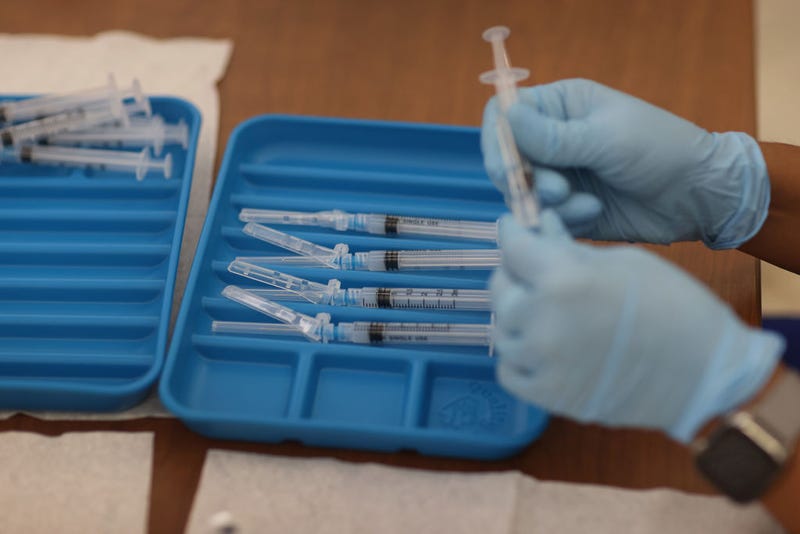
A little over a year after the U.S. Food and Drug Administration first issued Emergency Use Authorization for the Moderna COVID-19 vaccine, it finally gave the medication full approval Monday.
According to a study published last month, the Moderna vaccine could actually provide more protection against certain strains of the SARS CoV-2 virus compared to the Pfizer BioNTech vaccine that was granted full approval by the FDA over the summer.
Both vaccines are two-dose mRNA vaccines. In addition to the initial two-dose round for adults age 18 and over, the FDA has also issued emergency authorization for Pfizer BioNTech shots for children as young as 5 years old. Pfizer and BioNTech are currently working in a vaccine for even younger children.
At this time, Moderna vaccines are only available in the U.S. to people who are at least 18 years old. Moderna’s vaccine is marketed under the name Spikevax and Pfizer’s in marketed under the name Comirnaty.
Study results found that people who received the Moderna vaccine had a lower risk of breakthrough COVID-19 infection during the delta variant surge compared to those who had received the Pfizer vaccine. While delta dominated COVID infections over the summer, the omicron variant has been driving case numbers since November. As of Tuesday, omicron accounted for approximately 99.9 percent of COVID-19 cases in the U.S. and delta was still identified as a variant of concern.
Though the highly contagious omicron variant fueled a surge in cases over the holiday season, the new case average in the U.S. dropped by close to 20 percent during the seven-day period leading up to Jan. 28.
It is not yet clear if any available vaccine in the U.S.
offers more protection against omicron specifically compared to others.
Kelly Grindrod, a pharmacist and associate professor at the University of Waterloo school of pharmacy in Canada said studies show that Moderna has a slight edge over the Pfizer BioNTech vaccine, especially for older people, according to the CBC. Researchers have found that more antibodies resulting from the Moderna vaccine may be present six months after receiving the shots.
Another study published late last year in the New England Journal of Medicine found that while both the Moderna and Pfizer vaccines were effective, the Moderna vaccine was slightly more effective.
According to Grindrod, Moderna’s vaccine may have longer-lasting effects due to its dosage amount, which is 100 micrograms of mRNA compared to Pfizer’s 30 microgram full dose vaccine. Pfizer’s vaccine for children under 12 years old is 10 micrograms. Its third booster dose is 30 micrograms and Moderna’s is 50 micrograms.
“There's actually more mRNA in the half-dose Moderna than the full dose Pfizer. So when we're looking at protection, this slightly higher dose might actually give a slightly more durable immunity when it's a booster shot,” Grindrod said. However, she said more data on booster shots is needed.
Currently, the U.S. Centers for Disease Control and Prevention recommends booster shots of Pfizer or Moderna vaccines at least five months after initial rounds are administered. It recommends both of the mRNA vaccines over the single shot viral vector Johnson & Johnson vaccine approved for emergency use due to blood clotting concerns associated with that vaccine.


